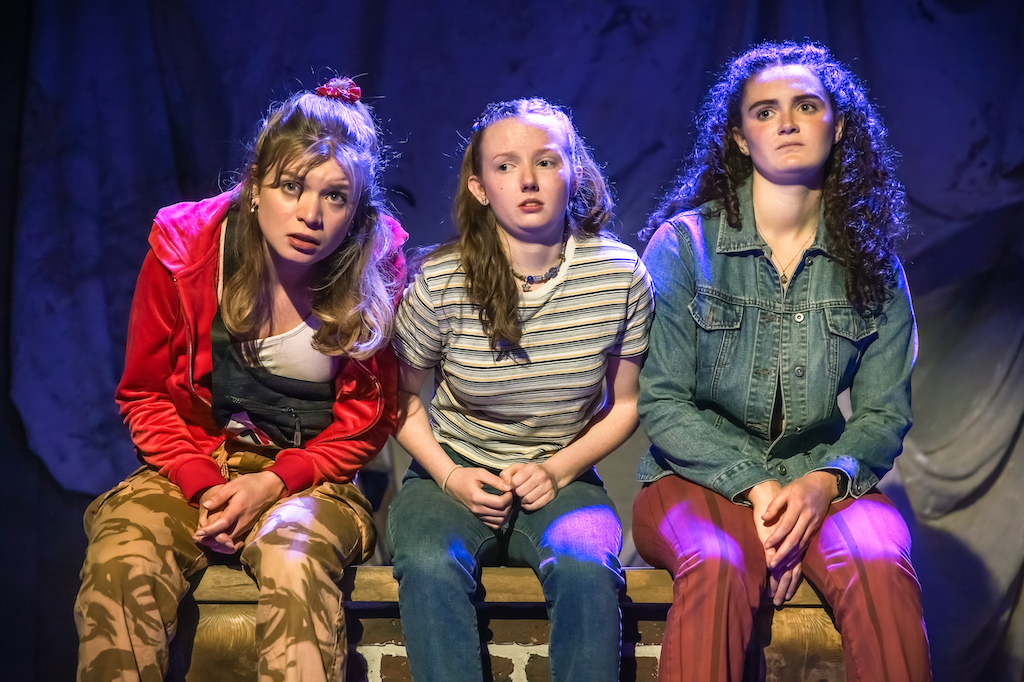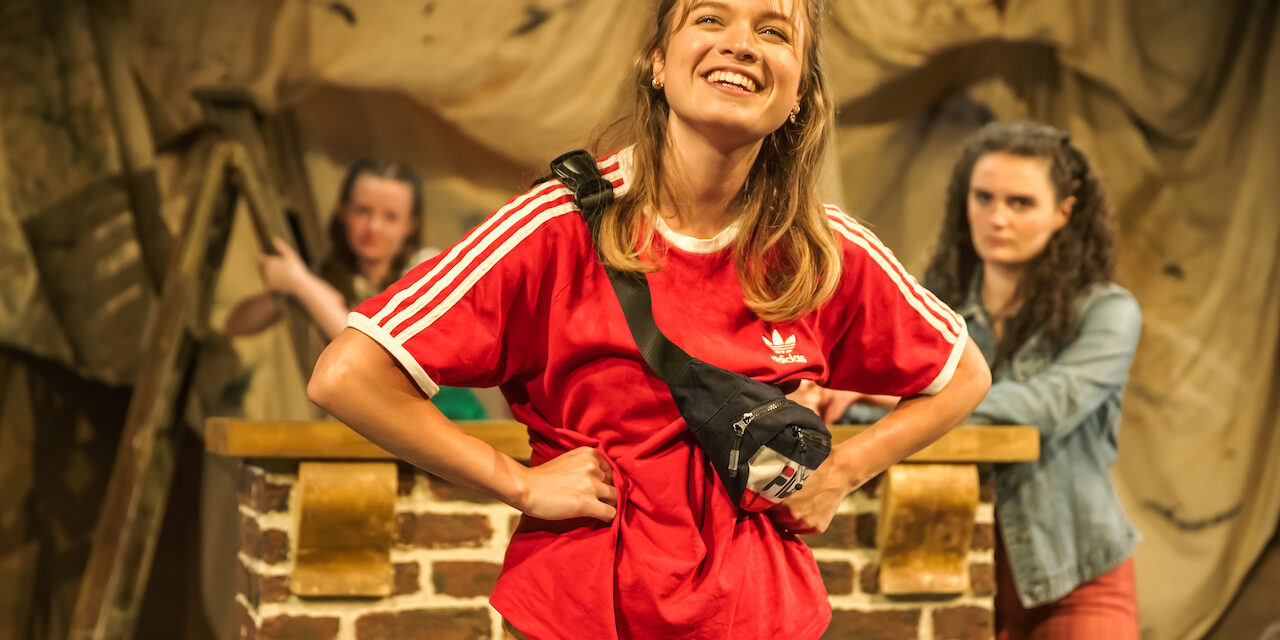
15 – 17 June
‘They do everything they can to keep us poor.’ No One Will Tell Me How To Start A Revolution is an angry, heartfelt depiction of the insurmountable obstacles to personal progress often faced by disadvantaged working-class kids. We see three teenage sisters with a terminally ill mother and an over-worked father. His efforts enable them to move from a tough council estate – where ‘no-one drives BMWs or Mercedes… except the drug dealers’ – to a more affluent suburb. They can now attend a school that supposedly offers them a wealth of possibilities but, dismissed as mere ‘chavs’, they encounter unremitting class prejudice, heartless exploitation and, ultimately, outright rejection. All their aspirations come to nothing, and their future remains bleak.
It might be thought that this is overly familiar territory, and that Ken Loach has surely done it all before. But writer Luke Barnes has endowed No One Will Tell Me How To Start A Revolution with a freshness of approach that revitalises the argument. There is a directness and a vitality that is very engaging, with the blackness of the tale occasionally relieved by bright splashes of robust, colourful humour. There is no fourth wall, and the audience is frequently addressed directly, often in a quite confrontational fashion. Theatre-goers are unlikely to be representative of the poorest, least well-educated sections of society, and in this context the comment, ‘I’m sure lots of you’ve read Wuthering Heights’ seems more of an accusation than a compliment.
Barnes has created three immensely likeable and entirely believable characters, whose fraught relationships with their snooty new classmates and teachers is recounted in a full-bloodied, highly energised manner. Director Roisin McCay-Hines has ensured that their story, with all its changes of pace and shifts in mood, is delivered with clarity and conviction. Her three talented young actors give performances that ring entirely true, depicting teenage sisters full of hope and full of potential, yet somewhat rough around the edges and ignorant of the rules of the middle-class game.
Lucy is the youngest and brightest, peppering her conversation with literary references. Anna Murphy vividly conveys both Lucy’s earnest bookishness and her innocent, doomed romanticism.
In contrast, her eldest sister Suzie has a serious and more realistic approach to life. Unlike Lucy she is not academically gifted, and she knows that achievement in sport offers her the best chance of fulfilling her dreams. Louise O’Dowd gives a moving portrayal of a girl who could have achieved a great deal as a swimmer, had she had the support and the facilities available to wealthier children.
Superficially tough and street-wise, middle sister Edwina is loudly assertive, sharply funny, and up for a fight. But she lacks a firm moral compass and this renders her terribly vulnerable. Sophie Charlton delivers a magnetic performance charting Edwina’s inexorable slide into sexual degradation. This is a gift of a role, and Charlton grabs it with both hands.
Luke Barnes wears his social conscience on his sleeve, and No One Will Tell Me How To Start A Revolution is a little lacking in nuance. He ensures that the odds are overwhelmingly stacked against his three protagonists, and middle-class complacency comes in for a no-holds-barred bashing. That is perhaps as it should be, particularly at a time when the determined self-interest of some of the most privileged members of society is so much in the news. However, what I will chiefly remember of this excellent BOVTS production is the very high quality of the performances. Bravo!
★★★★☆ Mike Whitton, 16th June 2023
Photo credit: Craig Fuller


